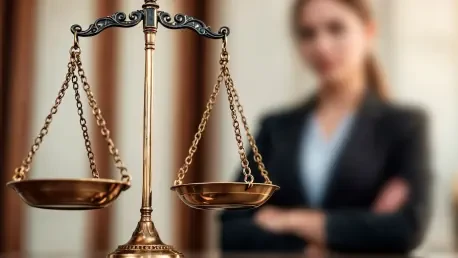The legal battle unfolding against Illinois Attorney General Kwame Raoul marks another chapter in a complex debate regarding the integrity of state legal proceedings when intertwined with private firms. Three energy companies have filed a lawsuit, alleging the improper use of private law firms on a contingency-fee basis, raising questions about due process and impartiality in state-led legal actions. This scenario challenges traditional notions of public legal responsibilities and sparks a broader conversation about whether private profit-driven motives might jeopardize fairness in legal processes.
Diverse Perspectives on Public-Private Legal Collaborations
In examining the controversy, insights from industry experts highlight a growing trend where public offices partner with private firms to handle legal matters. Some experts note that the increasing reliance on private firms brings specialized expertise that public offices may lack due to resource constraints. On the contrary, critics caution that such partnerships might lead to conflicts of interest, where the profit motives of private entities could overshadow equitable justice. This dual perspective underscores the crucial balance between state legal duties and potential financial gains driving private legal strategies.
Challenges in Balancing Legal Duties and Profit Motives
The tension between public responsibilities and private incentives becomes starkly apparent through recent case studies where public offices have engaged private firms. Legal professionals argue that contingency-fee arrangements might inherently bias legal strategies toward maximizing monetary outcomes rather than ensuring justice. Others contend that utilizing these fee structures is an innovative solution to resource limitations faced by many governmental agencies. The debate remains centered on balancing effective legal collaboration with safeguarding unbiased legal proceedings.
Shifts in Legal Strategies: Insights from Experts
Resource constraints often push states to seek partnerships with private law firms, but this comes with both opportunities and risks. Experts affirm that these collaborations can bring in specialized knowledge and advanced legal resources, yet caution about potential compromises in impartiality. The emergence of hybrid legal strategies, where expertise meets fiscal prudence, could reshape governmental legal tactics. The ongoing discourse reflects the challenge of adapting legal strategies without losing sight of foundational justice principles.
Emerging Ethical and Innovative Trends
As state-private legal partnerships evolve, innovative approaches are surfacing in different regions and jurisdictions. Some professionals advocate for transparent frameworks that clearly delineate roles and expectations, aimed at minimizing ethical concerns. The diversity in legal practices across jurisdictions enriches the understanding of evolving norms. Emerging trends invite reexamination of traditional views on state legal processes, fostering a dynamic discussion on practical solutions to ethical dilemmas.
A Broader Ethical Exploration: Expert Opinions
Ethical dilemmas emerge when private firms play dual roles in public legal proceedings. The ethical landscape is complex, with some suggesting that clear boundaries must be established to maintain justice. As the legal industry evolves, there is a call for innovative frameworks that accommodate the benefits of private collaborations while preserving state legal integrity. Speculating forward, legal experts emphasize the necessity of balancing innovation with ethical accountability to redefine evolving legal processes.
Conclusions and Recommendations for Future Reading
This intricate discussion illustrates the nuanced interactions between private firms and state legal endeavors. While private partnerships bring expertise and resources, maintaining impartial state legal integrity requires well-defined practices and vigilant oversight. Recommended best practices include establishing transparent legal partnerships that prioritize justice, impartiality, and fair proceedings. By examining these insights, readers gain an understanding of potential changes in legal and policy fields, with thoughtful approaches suggested for future interactions.
Reflecting on Implications and Long-term Considerations
This unfolding legal debate accentuates critical perspectives on collaboration between public and private legal stakeholders. The case invites a reflection on how evolving strategies might impact legal integrity over time. As discussions continue, the challenges posed by private firm involvement in state legal actions offer a platform for considering fresh strategies and navigating future ethical and procedural complexities in the realm of public legal integrity.









